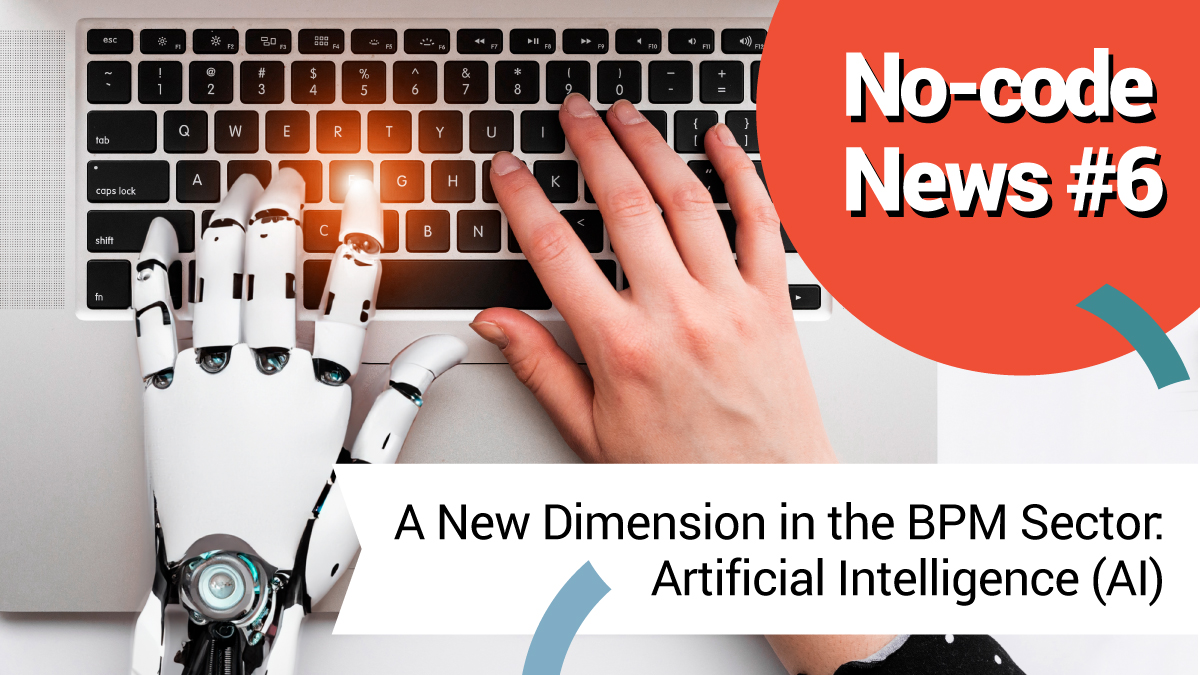
Artificial intelligence includes subfields such as data analysis, natural language processing (NLP), machine learning (ML), and deep learning. These technologies can perform various functions such as extracting meaningful information from large data sets, automating complex tasks, and making predictions. For instance, machine learning algorithms can identify patterns in large data sets to improve decision-making processes. BPM, on the other hand, encompasses the processes of modeling, analyzing, improving, and automating an organization’s business processes. BPM is used to increase the efficiency and compliance of business processes. The tools and methods used in this context aim to optimize every stage of these processes.
Artificial Intelligence (AI) and Business Process Management (BPM) stand out as two significant technological areas with the potential to create revolutionary changes in the modern business world. While AI refers to algorithms developed to enable machines to exhibit human-like intelligence, BPM can be defined as a management discipline that helps businesses optimize their processes, increase efficiency, and reduce costs. The combination of these two areas will further elevate the potential to provide innovative solutions and competitive advantages in the business world.
The combination of AI and BPM will make business processes smarter, faster, and more efficient. Through this integration, businesses can gain significant advantages in various areas. For example:
Automatic Process Modeling and Improvement: AI can automatically model existing business processes by analyzing them and making improvement suggestions. This ensures the continuous optimization of processes.
Data-Driven Decision Making: AI analyzes large data sets to provide insights and support decision-making processes. This enables more informed and data-driven decisions in business processes.
Personalized Customer Experience: AI can offer personalized services by analyzing customer behaviors. With BPM integration, these personalized services can be integrated into business processes, increasing customer satisfaction.
Automatic Task Allocation and Monitoring: AI allows for the automatic allocation and monitoring of tasks within business processes. This minimizes human errors and ensures more effective management of processes.
The future integration of AI and BPM will provide even deeper and more comprehensive transformation in the business world. Some of the anticipated directions for this transformation include:
Full Automation and Autonomous Systems: In the future, AI-supported BPM systems could fully automate business processes without human intervention. This offers significant advantages, especially for automating repetitive and time-consuming tasks.
Real-Time Process Optimization: AI can optimize business processes in real-time by analyzing data instantly. This enables quick adaptation to changing conditions and makes a continuous improvement cycle possible.
Proactive Business Process Management: AI can take proactive measures by predicting future trends and potential issues. This allows business processes to be managed with pre-planned strategies.
Augmented Reality and Digital Twins: When AI and BPM integration is combined with augmented reality and digital twin technologies, it will be possible to simulate and test business processes in a virtual environment. This reduces the risk of process improvements and paves the way for developing more innovative solutions.
In conclusion, the inclusion of AI in business processes will bring a fresh breath to the business world and simultaneously present various opportunities and innovative solutions. This integration enhances the existing efficiency of business processes, providing organizations with a significant advantage by adding to their flexible and competitive structures. In the future, a major transformation in the business world is expected with the deeper integration of these two areas. For organizations aiming to optimize their business processes and gain a competitive edge, the combination of AI and BPM is becoming an unavoidable necessity.
References
Zebec, A. & Indihar Štemberger, M. (2024), “Creating AI Business Value Through BPM Capabilities”, Business Process Management Journal, Vol. 30 No. 8, pp. 1-26. https://doi.org/10.1108/BPMJ-07-2023-0566.
https://www.tubisad.org.tr/tr/images/pdf/tubisad-bit-2022-tr-120523.pdf















